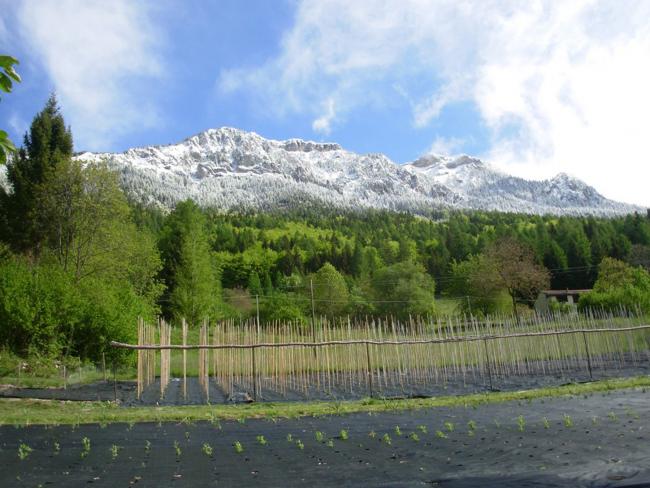Save the Lamon bean from destructive viruses that prevent its economical cultivation and historical biodiversity

The Lamon bean is subject to recurrent virus epidemics with severe productive losses. Virus diseases cannot be cured and actually cultivated ecotypes lacking in genetic resistance. In the present project we intend select plants that in fields, under high infective pressure conditions, shown resistance or tolerance to viruses. The selection process of plants under conditions of high infection pressure may be continuous, leading in the medium term to the selection of tolerant or resistant ecotypes. The farmers will have healthy seeds available, deriving from a process of "guided co-evolution" with pathogens and therefore with enhanced resilience.
The main activities are organized in three WP and sumarized as:
• Search of Lamon bean plants that behave as resistant or tolerant to viral plant pathogens in the field.
• Experimental confirmation of the status of resistance/tolerance in induced plants by artificial inoculations and application of laboratorial techniques in order to select induced and healthy plants.Molecular studies aimed to investigated origin of resistance/tolerance mechanisms.
• Improved virus-free seeds with enhanced resilience will be supplied to growers, annually.
• Diffused knowldege's by organizing local meetings and by means of several publications and a dedicated website http://www.fagiolodilamon.it
Selection of ecotypes of Lamon bean under virus infection pressure conditions. The selection of bean lines under controlled virus infection pressure (eg BCMV) represents an innovation from the point of view of the propagation of seeds. Usually in fact the seed propagation activity aims to obtain materials free from seed transmissible pathogens by excluding the contact between mother plant and a given pathogen. By this way the result is effective for the production of seeds free from the pathogen but at the same time there is no selection pressure exercised by the pathogen that could orient the selection of more tolerant genotypes. This innovative selection process can also be considered as "assisted" breeding, in fact the modern diagnostic techniques for pathogens will contribute to guarantee the absence of certain pathogens in the seed obtained. Consequently the seeds obtained by this process may be, as far as regards the absence of important pathogens, similar to those obtained in controlled cultivation environments but more resilient.
| Titolo/Descrizione | Url | Tipologia |
|---|---|---|
|
Sito del Capofila
|
Link ad altri siti che ospitano informazioni del progetto
|